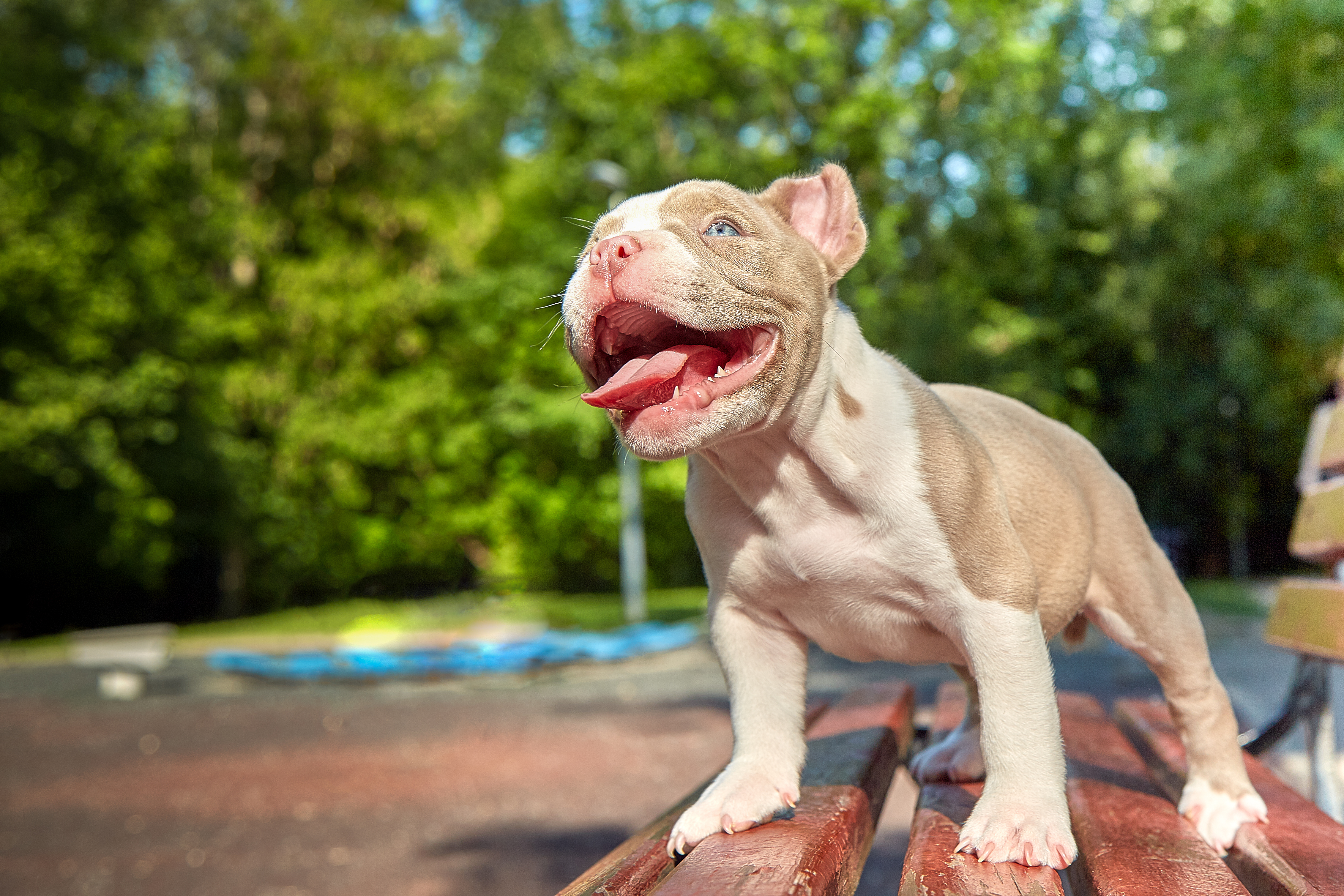Lucky you! You just adopted a new puppy, and you’re excited to spend time getting to know and training the new family member. But as you’ll learn, not all new things come easily to puppies. One issue where you may have some trouble is socializing your puppy, or introducing him to new people, new places, and new experiences. Our vets have come up with a few tips to help you socialize a new puppy to their big world.
Request a Puppy Vet Appointment
Why should I socialize a puppy?
You’ve likely encountered dogs who hate car rides, won’t go near the ocean, “don’t do well with kids,” or have other reservations, fears or insecurities that make them act out, cower, avoid certain situations or even become aggressive. These fears are often a result of a bad experience at a new place or from doing a new activity. Taking the time to socialize your puppy by providing positive experiences helps prevent your dog from having problems or causing problems as he matures. Having a puppy that is comfortable in a variety of situations and can remain calm also means that should your dog ever run away, he will be calm and friendly enough to be potentially rescued. You’ll also be more likely to find a new owner should a problem ever arise. Calm, happy dogs are set up for longer, happier lives.
When should I socialize a puppy?
It’s best to begin socializing puppies as soon as their eyes open; however, most of us aren’t there for our puppy’s birth. So plan to start socializing the day you bring your new puppy home. Aim to focus on socialization from about ages 3-12 weeks, as this is the key time for good socialization. This means you, as a new puppy parent, have a big project: expose your puppy to as many new things as possible – and almost everything in the world is new!
Just as you work on potty training and leash walking, make sure you also work on new experiences. These can be small, like meeting the neighbor kid, or larger, like taking the first trip to the groomer. Just make sure you start right away and keep regularly and consistently exposing your dog to new experiences.
Remember to also start early with handling all parts of your dog’s body. Make sure you and others regular (but gently!) touch your puppy’s paws, tail, ears and belly so your puppy becomes comfortable with being handled by you – and by others. Though early exposure is crucial, you should avoid exposing your puppy to lots of other dogs (like at the dog park) and other pets until about one week after the last round of puppy vaccinations.
How do I socialize my puppy?
- Stay positive. Plan to expose your puppy to as many different sites, sounds, textures and experiences as possible – but always in a positive or neutral manner. This means rewarding her with small, healthy treats (a little goes a long way for a small dog), and keeping the interaction upbeat and stress-free. Praise your dog, don’t show stress or concern, and take breaks when your puppy tires out.
- Explore everything. Take your puppy around the house (hardwoods, tile, carpet!), around the neighborhood (other dogs, joggers, kids on bikes, grass!), and on errands with you (car ride, car horns, new houses). Have your puppy meet lots of different kinds of people (people with sunglasses, people with walkers, people on roller skates, men with beards, the very old, the very young, etc.). Take the puppy to a dog park, a groomer, a public park and the vet.
- Take it slow. It’s a good practice to take things slow, especially with timid dogs. Introduce puppies to new people slowly; meeting one or two family members may be enough for a young puppy who can then build up to meeting everyone at a block party next month. Try to introduce the puppy to new people while familiar people are around.
- Go on foot. Walks can be the best way to socialize a dog, as the puppy can encounter lots of new sites and sounds while also happily getting exercise. Keep your puppy on a short lease, and keep the walks short when puppies are very young. Be sure to change up the route you walk, and bring treats along to help reinforce good behavior and new experiences.
- Take a class. It’s also smart to sign up your dog for puppy classes. These classes not only teach basic commands, but they offer a safe place for your puppy to meet lots of other dogs and owners, usually in a public space. You’ll also have the help of a trained dog professional to guide you through any socialization issues your puppy may be having.
One final tip – if you don’t have time to take a dog with you everywhere for several weeks, then it might not be the best time to have a new puppy. Try to bring home new puppies when your schedule – and your family’s – allows for time at home and out exploring the world with your happy, new dog.
Our vets are always happy to talk about puppies and any training or behavior concerns you may have. We’re also here for all your puppy vaccines and new dog knowledge. We’d love to help you welcome a new dog into your life.













